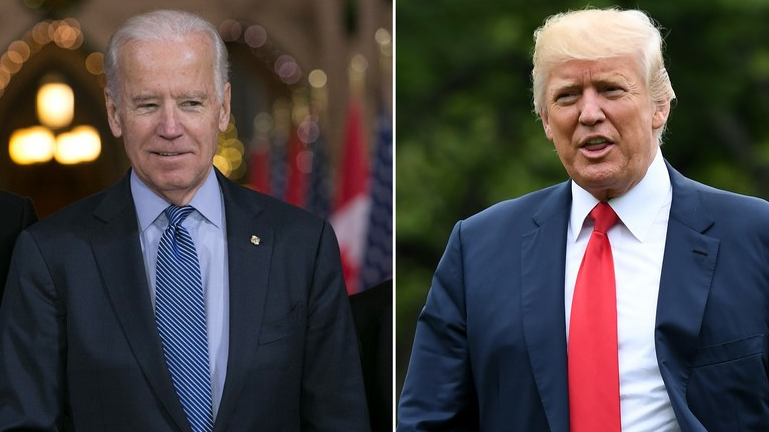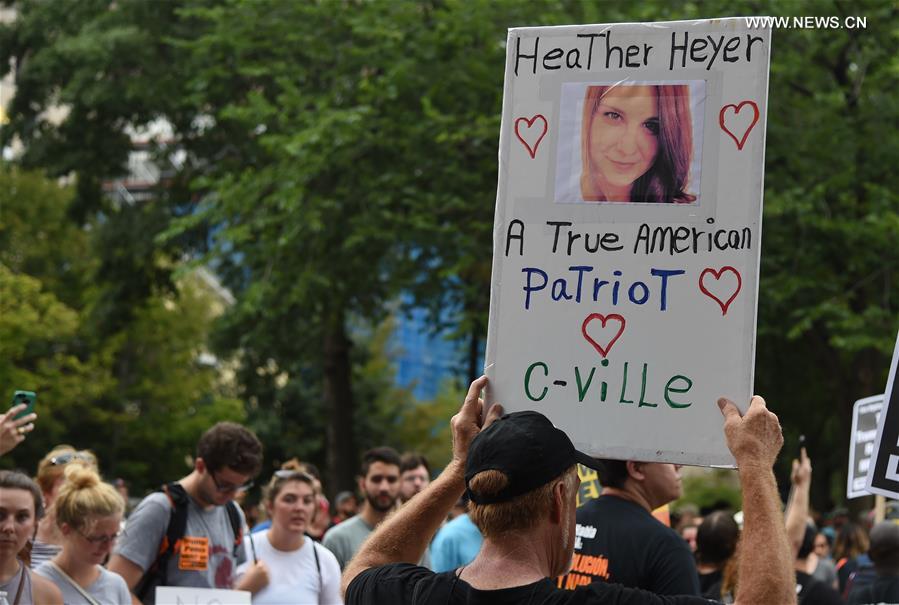
Combo photo shows former U.S. Vice President Joe Biden (L) and U.S. President Donald Trump at separate events. /Xinhua
Combo photo shows former U.S. Vice President Joe Biden (L) and U.S. President Donald Trump at separate events. /Xinhua
Editor's note: Iram Khan is a Pakistan-based commentator on international affairs. The article reflects the author's opinions, and not necessarily the views of CGTN.
The U.S. is yet to face its biggest test under the presidency of Donald Trump, which is neither about pressurizing another foreign country for partisan gain nor withdrawing American participation from another multilateral forum.
But it is about Trump refusing to accept defeat in the upcoming election and clinging to the Oval Office through legal and extralegal means.
Political professionals are racing to visualize and prepare for possible eventualities that may arise if this happens. The most significant study in this regard has been carried out by the Transition Integrity Project (TIP), a bipartisan group of U.S. experts. They released their report earlier this month and all scenarios involve street-level violence and political impasse.
As the sequence of events is expected to unfold, Trump is likely to lose the election and then fire up his support base on false and baseless allegations.
This is going to result in massive demonstrations across the U.S. CNN's Marshall Cohen even fears Trump supporters flocking to Washington to defend the White House.
The country is, at the moment, politically and emotionally charged. COVID-19 has become a divisive issue, police brutality against minorities is not slowing down and protests have become an everyday thing.
Even as the national media give ample coverage to the anti-racist rallies, a considerable number of Americans alarmingly believe that there is nothing wrong with the systemic discrimination and that they are not being adequately heard.
This group is what we know as white supremacists. Unlike the peacefully protesting anti-racists, they have rallied while sporting assault weapons and stopped short of violent clashes that could have been triggered by something as small as a verbal flare. Given confidence by Trump's inciting language, they have engaged in occupying government buildings while remaining unchallenged.
Trump has mobilized another group in his defense that the FBI deems a potential domestic terror threat. QAnon, which previously operated in the dark corners of the internet, has been brought into the mainstream by none other than the president himself.
Members of the group have been charged with murder, terrorism and planned kidnappings but Trump described them as"people that love our country."
Just as pernicious as these two entities are, Trump has a legal tactic up his sleeve: a protracted election results challenge that erodes any remaining faith the world has in the American political system.
He can file lawsuits in federal and state courts citing irregularities in the results and the controversy he has generated himself around mail-in voting. Both the Republican and Democrat campaigns have allocated millions of dollars and lined up columns of lawyers to fight the looming battle.
The TIP also believes that Trump could federalize the National Guards to stop counting of the mail-in ballots. This fear stems from his deployment of an armed and unmarked military force in Oregon last month to quell the anti-racism protests.
Appearing quite the tool of an authoritarian regime, the shadowy federal force was making proactive arrests that resembled abductions.
This dystopian outlook of the post-election landscape raises the question of how the richest country on the planet fell to a level where voices inside and outside are discussing such situations. The answer, not surprisingly, leads back to Trump.

An anti-protester holds a placard in front of a white supremacist-led rally near the White House, Washington, DC, August 12, 2018. /Xinhua
An anti-protester holds a placard in front of a white supremacist-led rally near the White House, Washington, DC, August 12, 2018. /Xinhua
The U.S. economy had been sliding downward with his ill-conceived trade and economic policies implemented within a year of his assumption of office. And when COVID-19 hit, it went off the cliff. Unemployment reached record levels and the government was unable to protect vulnerable sections of the society.
The psychological impact of losses, exacerbated by Trump's botched strategy of containing the pandemic, has instilled a sense of insecurity among the public.
Additionally, repeated killings of young black men at the hands of law enforcement officers have ignited fears that the country might be heading toward becoming a police state. The collective American conscience is, therefore, on the tip of the edge.
If a contested election further delays the chances of economic recovery, the consequences will be disastrous. An extension of the recession will not only impair the national economy but will also send waves around the globe. The dollar will lose its luster much faster and the U.S. will look more like the places it has been bombing – some to the stone age.
American pundits have been touting their political model as the final hope for progress. They have called it the "end of history" where all nations are waiting to melt into but when it led to the rise of Trump, the model received a blow to its practicability.
The two parties, with their increasingly polarizing views, are ripping the souls of voters in opposite directions. A violent post-election scenario, under these circumstances, is very much a reality.
The U.S. has been a source of stability in some parts of the world, and one of instability in others. An unstable domestic environment, however, can have a ripple effect on the entire international order.
In addition to China and the EU, the U.S. drives global growth but its future is hanging by the whims of a single person. If the American intellect fails to act today, then the experiment undertaken by the country's founding fathers might well end up in failure.
(If you want to contribute and have specific expertise, please contact us at opinions@cgtn.com.)